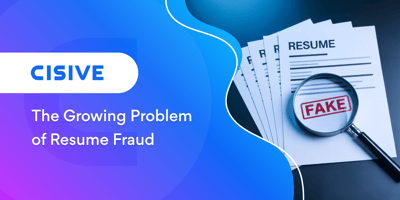

Employers that use background screening methods to vet potential employees are likely aware of...

An employer’s ability to quickly onboard new employees can be beneficial for meeting customer demand and retaining top talent. To decrease time-to-hire, some businesses and HR departments use conditional employment offers to speed up the process. Conditional employment allows an employer to extend an offer prior to completing certain hiring steps (e.g., drug tests, background checks, physical exams). Theoretically, the employer can then withdraw the offer if a condition of employment isn’t met.
Prior to implementing a program for conditional employment offers, a business should consider some of the following best practices. Ultimately, an employer’s use of conditional employment offers may only make sense in certain businesses or industries.
Generally, employers have some discretion on the types of conditions they place on an offer of employment. For example, certain jobs might be contingent on an employee obtaining certain certifications (e.g., bar license, accounting license). Even more common are employment offers contingent on passed drug tests or clean background checks.
However, employers should be mindful of unlawful conditions of employment that may discriminate against a protected class (e.g., race, gender, religion, medical condition). Even conditions that are not expressly discriminatory could still create legal problems if applied inconsistently against protected classes.
The Fair Credit Reporting Act (FCRA) is a federal law that requires companies to disclose their intent to perform a background screening of an applicant. Companies must also obtain authorization from the applicant prior to performing the background check.
If a company decides to take pre-adverse action based on the findings of the report (i.e., not hire the applicant or let them go after a conditional offer), then additional obligations arise.
Mainly, an employer must do the following:
The FCRA also recommends using a clear and simple document to provide the disclosure and obtain prior authorization. In other words, the document shouldn’t contain any liability waivers, certifications, or language that confuses the document’s purpose.
Each state may also have its own unique rules for how businesses use conditional offers to hire employees. Employers should work closely with their legal counsel and HR departments to ensure compliance with state and local regulations in addition to federal employment law (e.g., avoiding discriminatory practices).
Before making a conditional offer, employers may want to consider pre-assessment tactics to reduce the risk of having to rescind an offer afterward. Some of these practices may include:
Again, reviewing documentation and pre-assessment policies with HR and legal will help an employer avoid illegal hiring practices that create unnecessary liability.
Employers can be competitive in quickly hiring top talent by using conditional offers in situations where background checks and other requirements seem like a mere formality. The tradeoff, of course, is the risk of having to withdraw a conditional offer or take other adverse action against an employee/applicant. Complying with relevant law, seeking advice from counsel, and adopting other best practices can help an employer reduce the risks of this time-to-hire reduction strategy.

Employers that use background screening methods to vet potential employees are likely aware of...

California’s Fair Chance Act is part of the Fair Employment and Housing Act (FEHA), and its primary...
